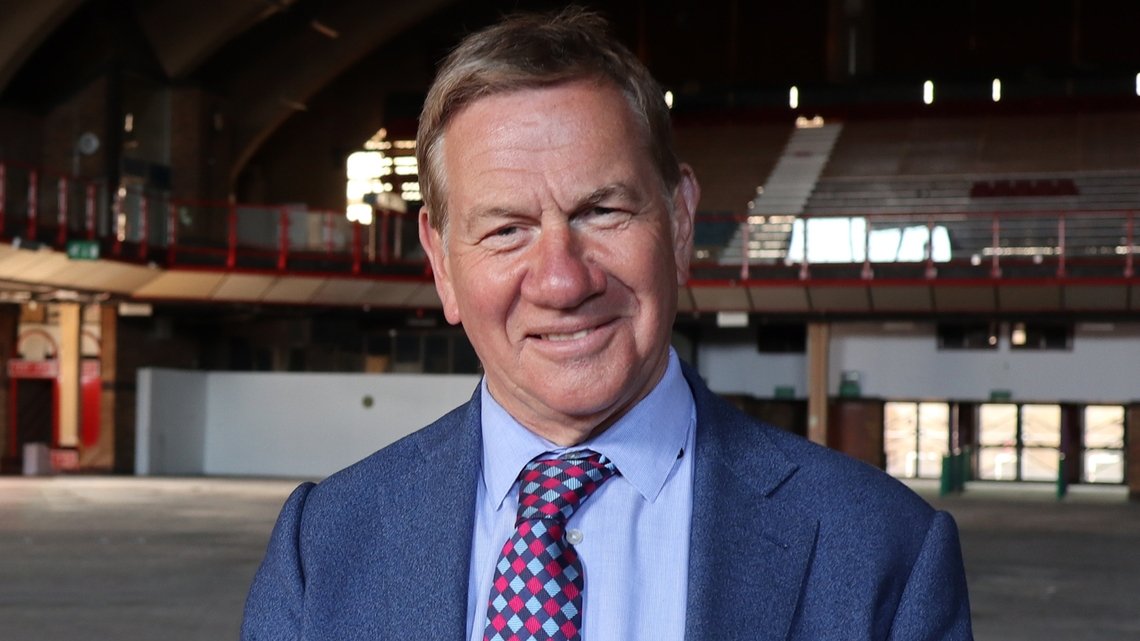The following article was submitted by a Socialist Republican reviewing the recent RTE programme Partition 1921.
RTÉ’s latest piece of pro-British propaganda, ‘Partition 1921’, sees a former Tory minister, Michael Portillo, try his very best to legitimise the continued British domination of the six counties by presenting a narrow, one-sided view of our history.
The viewer is presented with a version of history that sees the struggle in Ireland as an offshoot of the political wrangling between the Conservatives and Liberals in London – you’d think Ireland only became an issue for the Brits when W. E. Gladstone began supporting Home Rule. While we hear all about active support for unionism (including a description of a meeting of southern unionists) only two acts of republican resistance are mentioned throughout, that is to say, the core of the issue (mass resistance to British imperialism) is largely ignored. The Brighton bombing of 1984 opens the documentary and is mentioned later – while no explicit mention is made of the colonial and loyalist violence which has characterised the last century (and more) of life in the six counties. The unionist violence which is alluded to is presented as legitimate political resistance for the ‘unionist cause’ rather than sectarian murders and pogroms.
The 1916 Rising is mentioned in passing only to describe it as an offshoot of unionist activity, claiming that Pearse and Clarke were just copying unionists, that ‘Edward Carson and Bonar Law were the godfathers of the Easter Rising’ (no joke!). This is easy to do when you make no mention of the generations of republican resistance which the Irish Volunteers and Irish Citizens’ Army were carrying forward. We meet a number of Orangemen in the documentary who are given the chance to give their version of history, describing the establishment of the Orange Order in 1795, apparently as a defensive organisation against sectarian Catholics. Zero mention is made of the revolutionary republican movement around the United Irishmen of the 1790s (led mainly by Protestants) whom the Orange Order were actually set up to combat – inflicting unbelievable levels of terror and violence against ordinary people in order to crush this threat to the Protestant Ascendancy and British rule.
Placing the narrative of unionism at the centre of this history is a cynical means of providing historical legitimacy to this rotten ideology and the sectarian, colonial statelet that was established by partition. We’re fed the complete unionist history – the Battle of the Boyne, the ‘Battle of the Diamond’ (the falsified Orange version), the ‘suppression’ of the Orange Lodges, the Solemn League and Covenant, gunrunning at Larne, the Curragh Mutiny, the Battle of the Somme, etc. – while next to no mention is made of the (far more influential) republican activity throughout this period. This one-sided history is intended to make partition sound inevitable. Perhaps if the documentary had been more aptly titled ‘Partition 1921: A Unionist & Colonial Perspective’ it would have made for less headache-inducing viewing.
The reality is the ‘Irish question’ for Britain did not emerge from divisions within the British ruling class nor from loyalism – these were both merely responses to decades and centuries of militant opposition from the Irish masses to Britain’s draconian rule. And this resistance only emerged due to the imperialist exploitation of our land – this is also left unmentioned throughout. The United Irishmen, the Tithe War, the Young Irelanders, the Fenians, the Land War, not to mention the flurry of activity between 1913 and 1923, all this ceaseless resistance made it clear to Britain that her domination of Ireland could not go on indefinitely. Home Rule and partition were the solutions envisioned to hold back the tide of history.
But surely they threw in some nationalist perspectives to render proceedings a little less obviously propagandistic? Why of course – we hear from the staunch nationalists (though even stauncher friends of Britain) Bertie Ahern and Gerry Adams, both of whom seem content that the 1998 Good Friday Agreement repealed the 1920 Government of Ireland Act. We’re sure the Brits had tears in their eyes as they scratched that act off the statute books, replacing it with a more acceptable version of much the same thing. All this did was spruce up some of the window-dressing on partition – the fundamental reality of British colonial domination was not only left untouched but was in fact strengthened by the assent of another batch of traitorous nationalist leaders. Portillo can hardly contain his glee while presenting this reality to Adams.
Adams is an acceptable ‘republican’ thrown in to make the distorted history go down easier. He claims to not be a fan of John Redmond’s yet he’s certainly been acting as his spiritual successor for the last couple decades, advocating cooperation with British imperialism and a ‘peaceful’ path from their colonial grip, playing the constitutional game which the Brits have always been delighted to trap Irish nationalists in. Ultimately both himself and the former Tory minister agree that ‘dialogue’ is the most important thing for ‘peace’ – surely the Brits are laughing their heads off while republicans turn in their graves.
If the BBC produced such a distorted, whitewashed version of our history you’d have to just shrug your shoulders. But when the so-called ‘national broadcaster’ is commissioning an elitist Brit to give an elitist Brit version of our history it can’t help but make the blood boil. We’re left wondering why RTÉ wouldn’t commission a documentary from any of the many Irish people who’d be more than willing and able to produce such a documentary – but we’re not picky, just about anybody who didn’t serve as a junior minister under Margaret Thatcher would be fine, please and thank you.
The documentary is yet another banal booster-shot for the tale of ‘two identities’ – equally legitimate, intractable in their opposition – which the ruling classes (in Ireland and Britain) push in order to legitimise Britain’s rule. Several times throughout the documentary Portillo claims that the Tories acted as they did in partitioning Ireland in order to ‘pacify unionism’ – meanwhile the historical facts, which even his own documentary presents, demonstrate that the Tories used unionism as a means to maintain their colonial domination over Ireland. The Tories spoke of ‘playing the Orange card’. Portillo claims that this period is ‘uncomfortable’ for him because of this. Well nobody tell him that the Tories have never stopped ‘playing the Orange card’ – most recently in their negotiations with the EU, encouraging loyalist violence in order to strengthen their hand against Brussels.
The Free State is pushing a campaign for a ‘shared’, ‘agreed’ (rather than united) Ireland. This documentary is another move in that propaganda war. The idea is to present unionism (a pro-colonial political ideology) as perfectly acceptable and that nationalists need to make endless concessions placating these eighteenth century dinosaurs in order to achieve territorial unity (several decades from now… maybe). The Ireland the Free State envisions is primarily to be ‘shared’ and ‘agreed’ with Britain.
The most importance piece of greasy wool the documentary tries to pull over our eyes is the ceaseless lie that a border poll is just around the corner (twenty-three years and counting now…) and that Britain now rules the six counties by ‘consent’. Having experienced several centuries of imperialism the Irish people are alert to its nature and won’t be fooled by such blatant sleights of hand – RTÉ will need to get working on much better propaganda than this if they want to keep us pacified.

